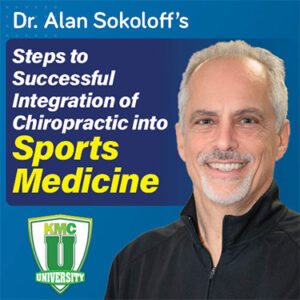Therapy and Active care is the new normal
Remember when rehab was considered a specialty area within chiropractic? No longer. What used to be the norm in our profession, the passive-care model, is simply, well, too passive. Both patients and third-party payers want active care as part of a treatment plan, and they expect integrated rehab methods, faster recovery, and improved physical function as outcomes. Chiropractic active care is here to stay—and for the creative and competitive DC, it’s an opportunity to boost the bottom line.
 Interestingly, insurance companies actually favor active care because it gets patients better faster, and they retain their progress longer – a goal that dovetails nicely with what DCs want for their patients. For third parties, justification for care and proper documentation are essential, but “restoration of function” is the operative phrase in most insurance medical review policies, and one with which patients can identify.
Interestingly, insurance companies actually favor active care because it gets patients better faster, and they retain their progress longer – a goal that dovetails nicely with what DCs want for their patients. For third parties, justification for care and proper documentation are essential, but “restoration of function” is the operative phrase in most insurance medical review policies, and one with which patients can identify.
Compliant protocols
Compliance begins with structuring patient care to include chiropractic active care/rehab protocols in combination with appropriate documentation, coding, and billing, evidence of progress under care, proof of medical necessity, and outcomes assessments. There’s no need for a full gym in the office. Simple, low-tech active care rehab, coupled with at-home exercises, works just as well, and is much more cost-effective.
Using short-term and long-term goals as guides will help you document how the patient is progressing functionally. For example, a patient might have a short-term goal of being able to pick up her toddler, with a long-term goal of being able to carry her toddler around the house. Daily notes are much easier to write and your documentation is much more robust when it’s functionally based. You now have a clear beginning, middle, and end to the treatment. Response to active treatment supports your assertion that the patient is improving in function.
Change is worth the effort
We know change isn’t always easy. But we encourage DCs to focus on the benefits of rehab, or risk being left behind. If you don’t embrace these methods, it will become increasingly difficult to do business or even to recruit patients who are now looking for better, more well-rounded care. Not to mention how difficult it could be to continue to demonstrate a return to function that your patients’ third-party payers demand.
The transition is smoother if you determine exactly where you’re going ahead of time—and the direction in chiropractic towards a more active care-based model seems clear. KMC University offers multiple resources to help you integrate active care protocols with solutions for issues related to compliance and reimbursement.
Need more help? Schedule a free Discovery Assessment or check out Our Store!


Any chiros that haven't accessed KMC University's Library - do it! Can't recommend their coaches highly enough. With library membership you get discounted services like coaching etc. I wasted so much money hiring other people. These are the people you should pay for all billing/coding services! Best money I've ever spent.





